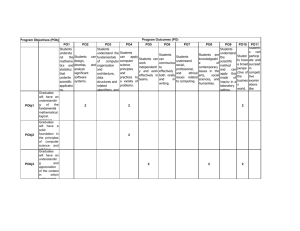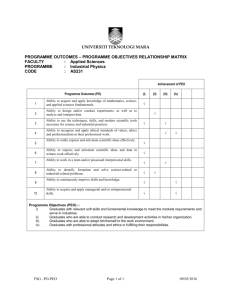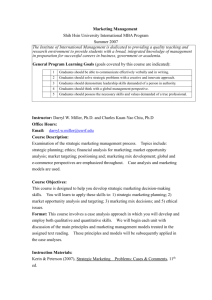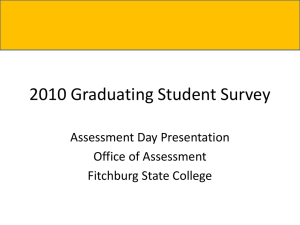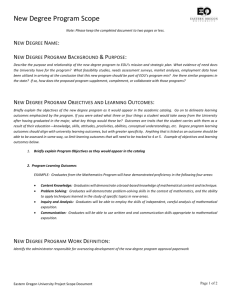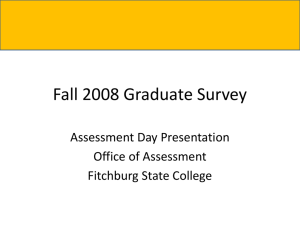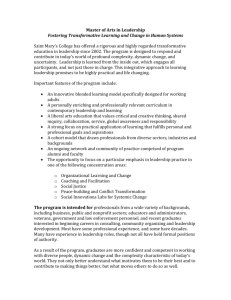History of Russian Civilization
advertisement
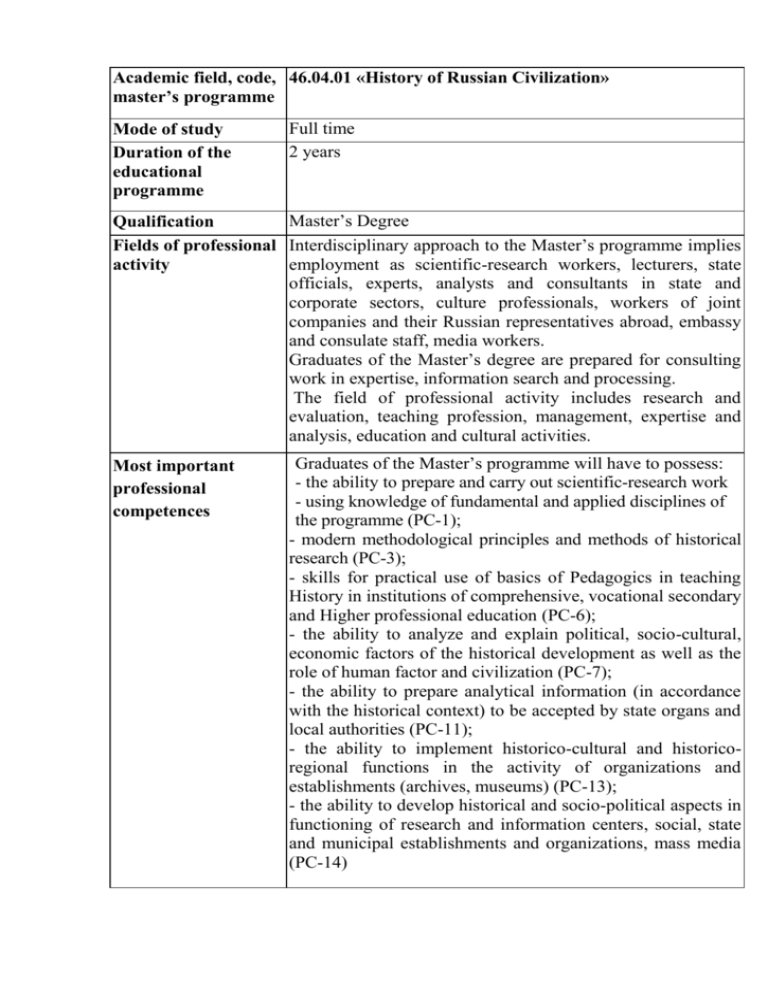
Academic field, code, 46.04.01 «History of Russian Civilization» master’s programme Mode of study Duration of the educational programme Full time 2 years Master’s Degree Qualification Fields of professional Interdisciplinary approach to the Master’s programme implies activity employment as scientific-research workers, lecturers, state officials, experts, analysts and consultants in state and corporate sectors, culture professionals, workers of joint companies and their Russian representatives abroad, embassy and consulate staff, media workers. Graduates of the Master’s degree are prepared for consulting work in expertise, information search and processing. The field of professional activity includes research and evaluation, teaching profession, management, expertise and analysis, education and cultural activities. Most important professional competences Graduates of the Master’s programme will have to possess: - the ability to prepare and carry out scientific-research work - using knowledge of fundamental and applied disciplines of the programme (PC-1); - modern methodological principles and methods of historical research (PC-3); - skills for practical use of basics of Pedagogics in teaching History in institutions of comprehensive, vocational secondary and Higher professional education (PC-6); - the ability to analyze and explain political, socio-cultural, economic factors of the historical development as well as the role of human factor and civilization (PC-7); - the ability to prepare analytical information (in accordance with the historical context) to be accepted by state organs and local authorities (PC-11); - the ability to implement historico-cultural and historicoregional functions in the activity of organizations and establishments (archives, museums) (PC-13); - the ability to develop historical and socio-political aspects in functioning of research and information centers, social, state and municipal establishments and organizations, mass media (PC-14) Employment options for graduates Entrance examinations Graduates of the Master’s programme can be employed in educational, scientific institutions, palaces of culture, scientific and socio-political publishing houses, governmental structures, defense and law enforcement agencies, social and commercial organizations, courts, mass media etc. Oral examination on major



